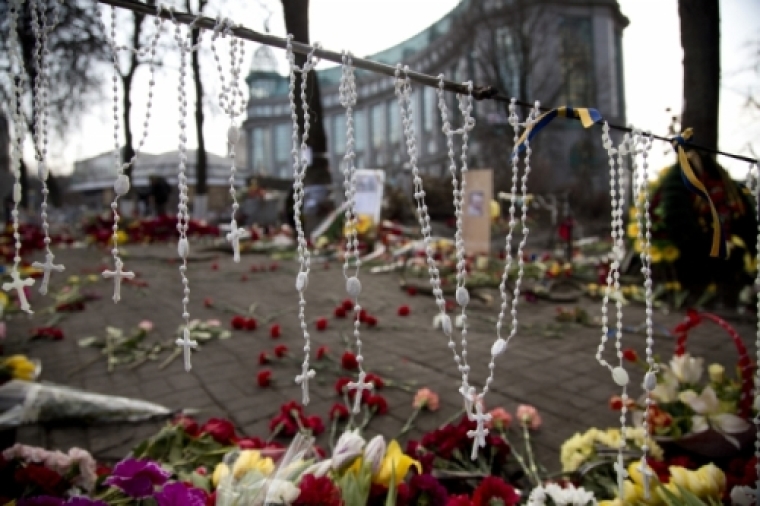
"We only communicate by phone or email," reported Msgr. Jacek Pyl, the Auxiliary Bishop of Odessa-Simferopol. "Even the aid packages are kept back at the border."
Despite its very restricted resources, the Catholic Church, which has just 2,000 adherents, cares for many families in difficulties.
After the referendum which determined Russia's annexation of Crimea, the Ukrainian banks were closed to make room for the banks of the Federation.
Russian currency has just gone into circulation and in the transitional period the residents had no access to their bank accounts, leaving them unable to draw their salaries or pensions.
"We are trying to respond to this emergency situation by distributing food and medicine, primarily to the large families," said the bishop.
"We also help the Greek-Catholic faithful, who take part in our services because all their priests have left Crimea."
Bishop Pyl has remained on the disputed peninsula, but it is not clear how his members will be able to stay there. It appears that the government in Moscow intends to introduce a mandatory visa for Ukrainians who did not originally come from Crimea.
Many of the priests working in the Diocese of Odessa-Simferopol are of Polish nationality and have a long-term residence permit issued by the Ukrainian government.
The detachment of Crimea has also nullified years of negotiations with Kiev about the return of Church property from Soviet times.
"It seemed that the church of Sebastopol, which was turned into a theater under communism, was just about to be returned to the Church, but the efforts of the past no longer count for anything."
Permits granted for construction or renovations are also now worthless, but Bishop Pyl refuses to be discouraged: "We've had to start from scratch so often and we are willing to do it again. The important thing is that no-one places obstacles in our way."
A few weeks ago the bishop distributed a letter to the population calling on the residents of Crimea "not to allow the fraternal relations between the peoples on this peninsula to be destroyed."
An identical appeal was then issued by the Russian-Orthodox Metropolitan Lazarus of Simferopol and Crimea.
"Christians of all denominations have prayed in spiritual union that there be no murderous conflicts among brothers. The fact that there was no bloodshed during the transfer of Crimea to Russia is a sign of the power of our prayer."
The relations with the Islamic community are stable at present, even though media reports are announcing the arrival of militant organizations from Chechnya and the former Yugoslavia.
"The situation is still calm, but the news that reaches us via the media is truly alarming."
Thinking of the region's uncertain future, Bishop Pyl stressed the great need for prayer and recounts how they are only surviving in Crimea thanks to the Christian virtues of faith, hope and love.
"Faith enables us to view what has happened through the prism of God's providence; in hope we look to the future, for we know that God is near at this difficult moment; and the love of God and our fellows helps us to stop hatred burgeoning in our hearts."